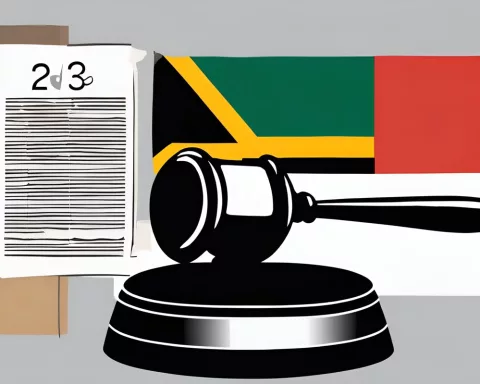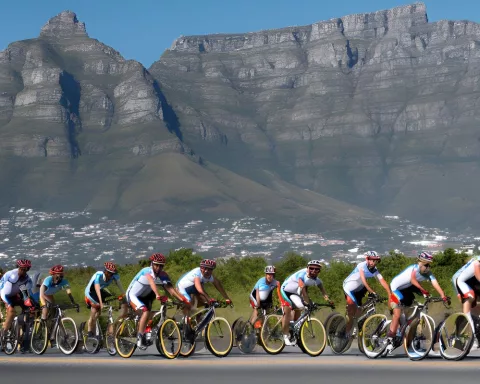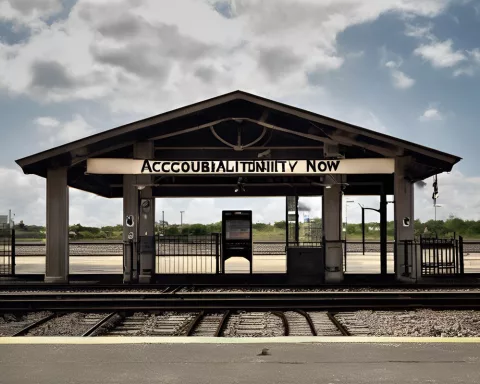Kombo Bere and Daan Terblanche, two promising young cyclists from Vhembe, Limpopo, are preparing to compete in the Cape Epic, despite financial challenges due to corruption and fraud that swallowed the R9.5 million allocated for cycling development in their region. The misallocated funds signify more than lost opportunities for proper training facilities and equipment – they robbed the cyclists of their dreams. Despite this setback, Bere and Terblanche remain undeterred, embodying true sportsmanship and resilience as they persist with their training.
The National Lotteries Commission designated R9.5 million for cycling development in Limpopo, but it was swallowed by corruption and fraud, leaving promising young cyclists, Kombo Bere and Daan Terblanche, empty-handed. The misallocated resources signify more than lost opportunities for proper training facilities and equipment to cyclists like Bere and Terblanche. This corruption case robbed them of their dreams.
The Dream of the Undaunted Duo
In the heart of Louis Trichardt, a town tucked within the rustic district of Vhembe, an inspiring yet somber tale of aspiration, determination, and dishonesty is being written. Kombo Bere and Daan Terblanche, two promising young cyclists, are diligently preparing for the most arduous mountain bike stage race on the globe – the yearly Cape Epic. They aspire not merely to participate, but to make history as the pioneering team from rustic Vhembe to compete against top-tier mountain bikers globally.
At 26 and 23 respectively, Bere and Terblanche are members of the Soutpansberg Youth Cycling Development program, an initiative designed to boost young bicycle enthusiasts from underprivileged areas. Their story is a testament to tenacity and grit, as they gear up for the demanding race, despite the significant obstacle of securing funding for the journey to Cape Town.
Earlier in the year, the Cape Epic organizers opted to forgive the substantial R145,000 entry fee for the pair. This act of generosity ensured their race expenses were covered. However, financial challenges involving travel costs, training gear, and high-end bicycles still loomed overhead. Ironically, these expenses should have been catered for by the funds explicitly set aside for cycling development in Limpopo.
A Tale of Misused Millions
In 2017, the tale takes a dark turn. The National Lotteries Commission (NLC) had designated a whopping R9.5 million for cycling development in Limpopo. This fund was seen as a beacon of hope for cyclists like Bere and Terblanche, projected to bolster the sport within the region by availing much-needed resources for training and equipment. Regrettably, this fortune was swallowed by a wave of corruption and fraud, leaving the ambitious cyclists empty-handed.
A nefarious plot unfolded involving a non-profit organization, Limpopo Recreational Providers. With several members from Vhembe, Christopher Tshivule, a convicted felon currently serving time for scam tied to a Lottery grant, was amongst them.
The hefty amount allocated for cycling’s growth was deposited into the organization’s account and swiftly transferred to three businesses. All three were associated with Collin Tshisimba and his spouse, Promise Kharivhe, who the Special Investigating Unit (SIU) has identified as central figures in the scam. Their businesses received funds, part of which was used to buy land, a vehicle, and even rerouted back to the NLC’s then Chief Financial Officer, Phillemon Letwaba.
The aftershocks of this grand scam left the Limpopo cycling scene in ruins, with nothing but dreams to hold onto. Hein de Jager, once a board member of Limpopo Cycling, remembers plans to construct cycling facilities, including a velodrome, a BMX Track and pavilion, and mountain bike trails. Sadly, none of these plans ever saw the light of day.
The Impact of the Scandal
Johan van Dijkhorst, responsible for mountain biking, shares de Jager’s disappointment and reveals his unawareness of the NLC-funded project. Stanley Thompson, an associate of the Soutpansberg Youth Cycling Development initiative, was also in the dark about any Lottery funding for assisting rural area cyclists.
Reflecting on what could have been, Van Dijkhorst envisions a situation where the funds could have procured quality bicycles, educated community members on bike maintenance, and even rolled out training and coaching initiatives. Thompson concurs, adding that the funds could have built a world-class facility, initiated a decade-long development initiative, and launched a significant national mountain bike race.
The misallocated resources signify more than lost opportunities for proper training facilities and equipment to cyclists like Bere and Terblanche. This corruption case robbed them of their dreams. “We would have had more young people in top teams, not just locally but abroad. I certainly had aspirations, at one point, to race for a team abroad,” regrets Bere.
Terblanche expresses similar disappointment, acknowledging the untapped talent in their region that has been denied the chance to flourish due to inadequate funding. He is convinced that the R9.5 million would have made a world of difference for potential young cyclists.
Hope Amidst the Struggle
As the Cape Epic race date approaches, Bere and Terblanche persist with their training, hopeful of securing the necessary funding for their Cape Town trip. The ghost of the lost millions casts a shadow over their ambitions, a harsh reminder of an excellent opportunity lost to corruption. Yet, they remain undeterred, embodying true sportsmanship and resilience—a display of their unquenchable passion for the sport they adore.
What is the Cape Epic race?
The Cape Epic is an arduous mountain bike stage race held yearly and is considered one of the toughest in the world.
Who are Kombo Bere and Daan Terblanche?
Kombo Bere and Daan Terblanche are promising young cyclists from Vhembe, Limpopo, who are preparing to compete in the Cape Epic.
What happened to the R9.5 million allocated for cycling development in Limpopo?
The R9.5 million allocated for cycling development in Limpopo was swallowed by corruption and fraud, leaving promising young cyclists like Kombo Bere and Daan Terblanche empty-handed.
Who was involved in the corruption and fraud?
A non-profit organization called Limpopo Recreational Providers was involved in the corruption and fraud, with some members being convicted felons. Three businesses associated with Collin Tshisimba and his spouse, Promise Kharivhe, received funds, part of which was used to buy land, a vehicle, and even rerouted back to the NLC’s then Chief Financial Officer, Phillemon Letwaba.
What impact did the scandal have on cycling in the region?
The scandal left the cycling scene in the region in ruins, with none of the plans for constructing cycling facilities and initiatives materializing. The misallocated resources signify more than lost opportunities for proper training facilities and equipment to cyclists like Kombo Bere and Daan Terblanche. This corruption case robbed them of their dreams.
Are Bere and Terblanche still competing in the Cape Epic?
Yes, Bere and Terblanche are still competing in the Cape Epic. The Cape Epic organizers forgave the R145,000 entry fee for the pair, but they still face financial challenges involving travel costs, training gear, and high-end bicycles.












